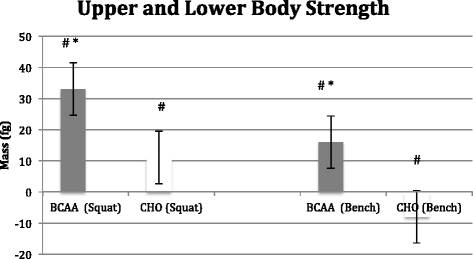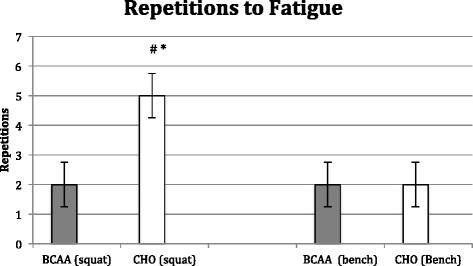While the world was caught up in the temptest of healthcare changes, the election, global terrorism, and Russian involvement in the US election, the sports nutrition world has been buzzing about BCAAs. Branch chain amino acids, or BCAAs, are a supplement that has grown in popularity, but with mixed support from the scientific community.
They are believed to help prevent muscle loss during calorie deficits, which makes them especially important to dieters or those going into periods of fasting. A recent study1 touted the benefits of BCAAs in regards to maintaining lean mass in a calorie deficit when compared to a calorie matched dose of carbohydrate. To quote the authors:
“… our data suggest that under hypocaloric conditions, those who participate in heavy resistance training can maintain lean mass and muscular performance by utilizing a BCAA product pre- and post-workout.”
Dueling Scientists
However, in the same publication was a letter to the editor that contested many points of this study.2 Shoenfeld, Aragon and Dieter asserted that the statistical methods in the study may have been flawed. They argued that what is called a t-test can lead to biased results. They also cited inconsistencies in the data reported. Fat loss was reported as .05 kg, yet it was actually 5%.
From the original study, a sample dietary card for a subject during an off, non-workout, day. Click to enlarge.
The authors of the study responded by saying that their method is time-tested, was approved by peer review, and that any statistical analysis is subject to error. The authors did note that the graph about fat loss had been labeled incorrectly, and that it should have been body fat percentage, not kilograms.

Change in muscular strength following 8 week study period as determined by 3-RM back squat and bench press. BCAA group received BCAA product while the control group received 28 g carbohydrate/electrolyte mixture at the same time.
Schoenfeld et al also contested that the resting metabolic rate data was conflicting. When someone loses weight, their metabolic rate goes down. In the results, resting metabolic rate dropped for BCAA group, but no data was reported for the carbohydrate-only group. The carbohydrate group lost more weight, so it should have shown a reduction in resting metabolic rate greater than the the BCAA group, which did not lose as much weight.
The authors responded by saying that individual differences made the data difficult to see trends, and that a larger subject pool would have been helpful.
Who Wins?
My point here isn’t to nitpick this individual study and the challenges that were presented by Schoenfeld et al. I want to highlight a few takeaways:
Nutrition research is really complex. Data has its flaws, as does the statistical analysis. Each study usually only looks at a single, specific population. In this case, young adult, resistance-trained males.

Change in muscular endurance following 8 week study period as determined by repetitions to fatigue at 80 % of estimated 1-RM on back squat and bench press.
For experienced lifters and dieters, experimentation with supplements is fun. Most people just need to have a reasonable exercise program, and an attainable way to reach a calorie deficit. Worrying about a small potential muscle loss during resistance training is such a minute detail. Do the work consistently, then perhaps worry about the 1% differences.
Never take a headline from a study as gospel. As the authors of the contested study rightly stated at the end of their response:
“Is this the seminal study on BCAA supplementation, body mass, and resistance training? By no means. However, what this study does is add to the knowledge base and present other research scientists the opportunity to mimic or expand on our methodology and results to determine what the data collectively says about this specific question.”
In the end, science is a collection of the totality of quality evidence. One headline shouldn’t change everything. If multiple studies come out replicating results, it’ll start to raise eyebrows. Focus on what you know works, and be cautious about changing course due to one finding.
How to break through the he-said, she-said:
The Dark and Bewildering World of Fitness Studies
References:
1. Dudgeon, Wesley David, Elizabeth Page Kelley, and Timothy Paul Scheett. “In a single-blind, matched group design: branched-chain amino acid supplementation and resistance training maintains lean body mass during a caloric restricted diet.” Journal of the International Society of Sports Nutrition 13, no. 1 (2016): 1.
2. Dieter, Brad P., Brad Jon Schoenfeld, and Alan A. Aragon. “The data do not seem to support a benefit to BCAA supplementation during periods of caloric restriction.” Journal of the International Society of Sports Nutrition 13, no. 1 (2016): 21.






